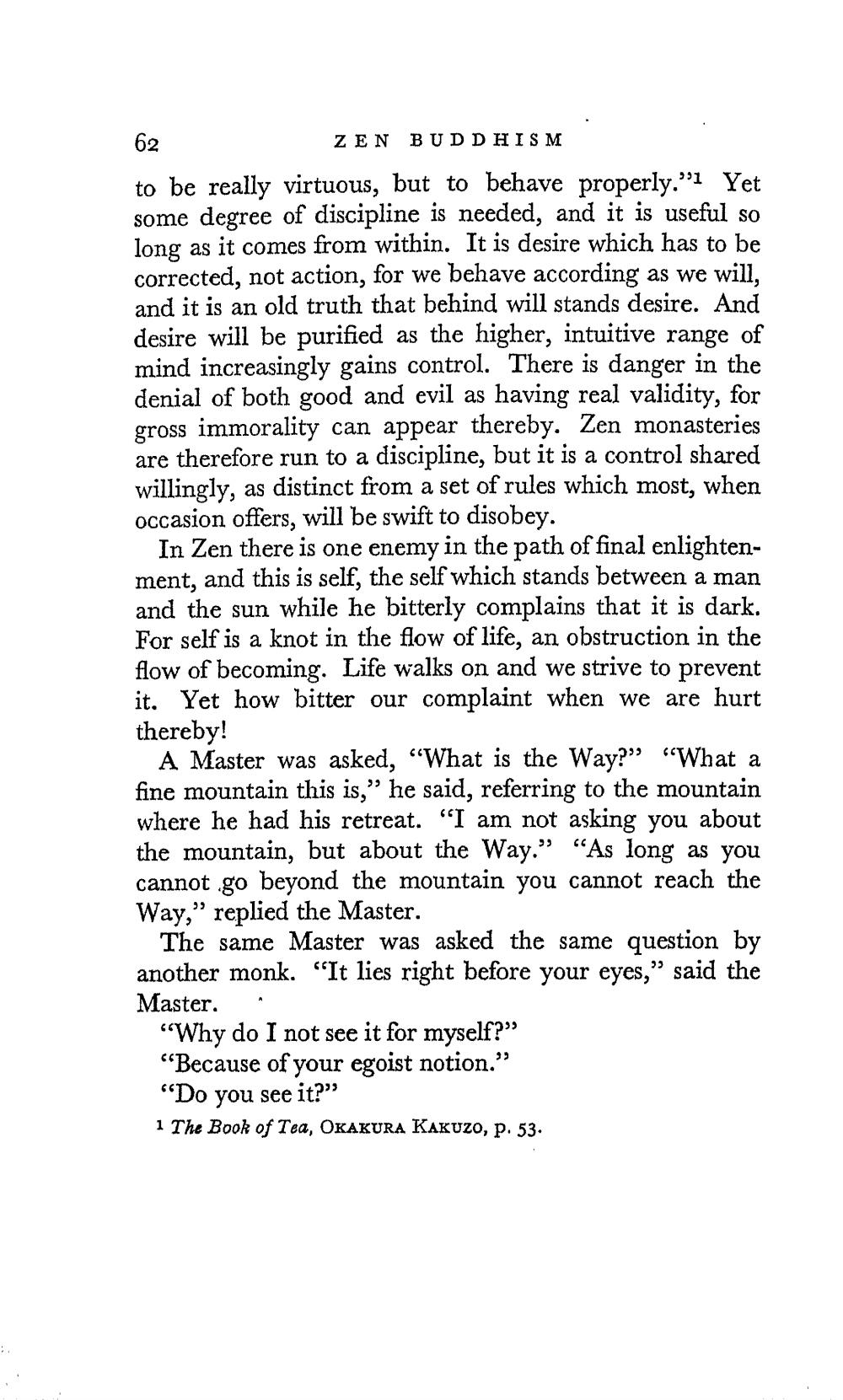________________
62
ZEN BUDDHISM to be really virtuous, but to behave properly."1 Yet some degree of discipline is needed, and it is useful so long as it comes from within. It is desire which has to be corrected, not action, for we behave according as we will, and it is an old truth that behind will stands desire. And desire will be purified as the higher, intuitive range of mind increasingly gains control. There is danger in the denial of both good and evil as having real validity, for gross immorality can appear thereby. Zen monasteries are therefore run to a discipline, but it is a control shared willingly, as distinct from a set of rules which most, when occasion offers, will be swift to disobey.
In Zen there is one enemy in the path of final enlightenment, and this is self, the self which stands between a man and the sun while he bitterly complains that it is dark. For self is a knot in the flow of life, an obstruction in the flow of becoming. Life walks on and we strive to prevent it. Yet how bitter our complaint when we are hurt thereby!
A Master was asked, "What is the Way?” “What a fine mountain this is," he said, referring to the mountain where he had his retreat. “I am not asking you about the mountain, but about the Way." "As long as you cannot go beyond the mountain you cannot reach the Way," replied the Master.
The same Master was asked the same question by another monk. "It lies right before your eyes,” said the Master. .
“Why do I not see it for myself?” "Because of your egoist notion." “Do you see it?" 1 The Book of Tea, OKAKURA KAKUZO, P. 53.




